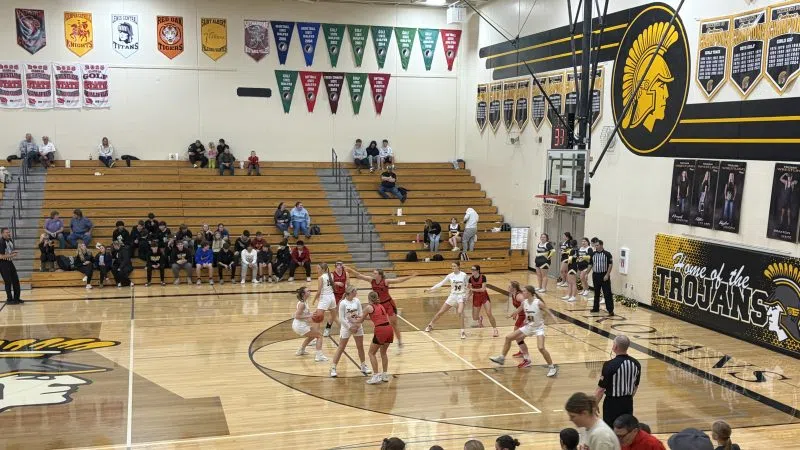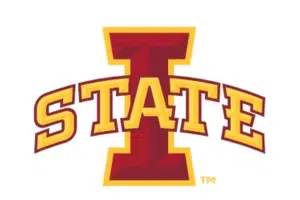(Des Moines) Iowa Auditor Rob Sand said Tuesday the state was withholding information about the state’s private school scholarship program — a claim various executive-branch agencies disputed.
The auditor’s office released a independent report Tuesday on internal control over financial reporting and compliance in the state. The report includes some findings related to the management of the state’s Education Savings Account program and Odyssey, the company chosen by the state to contract with for the program’s administration in 2023.
The ESA program provides funding each year to K-12 students to use for tuition and associated costs at private schools.
Sand said the Iowa departments of Education and Revenue did not provide the auditor’s office requested documents related to whether students receiving ESA funds met the income eligibility requirements. In the first two years of the program, only kindergarteners, Iowa public school students and private school students with a family income of 300% over the federal poverty line were eligible for the 2023-2024 school year. This year, there is a 400% FPL eligibility requirement and the income cap lifts in the upcoming school year.
Sand said the departments also did not provide proof of controls on how the state was ensuring the program’s funding was checked for waste, fraud and abuse. The said the Department of Education also refused to provide a Service Organization Control Type 2 (SOC 2) report from Odyssey on how the company was protecting Iowans’ personal data and privacy.
Sand said this information was requested as part of the annual comprehensive financial report (ACFR) conducted by auditor’s office. This information was requested as part of statutory requirement and the mission of the auditor’s office to hold government agencies and lawmakers accountable, he said, and to prevent waste, fraud and abuse in state spending — but that “we can’t do that when the governor gives her approval to hiding documents.”
“Bottom line is this: This administration won’t let us audit the controls on $100 million in your tax money going out on the governor’s program,” Sand said. “That program is likely to grow to over $300 million next year. We cannot say that it has appropriate and reasonable controls for waste, fraud and abuse.”
But Gov. Kim Reynolds and leaders of the state departments disputed Sand’s claims of withholding information, stating the auditor was launching a politically motivated attack against the ESA program, and that the auditor’s office had not followed necessary procedures to obtain the information in submitting a letter of engagement.
The departments of Education and Revenue released a statement Tuesday saying the auditor sought information on the ESA program “beyond the agreed-upon scope of the engagement letter” brought for the ACFR.
“Despite multiple responses informing the Iowa State Auditor’s office that targeted inquiries regarding the Students First Education Savings Account program operation were not within the scope of the ACFR and would require a separate letter of engagement for a performance audit to be filed, the Iowa State Auditor refused to do so,” the statement said. “The Iowa State Auditor has attempted to use the critically important ACFR process in place of a performance audit.”
The statement also points to multiple statements made by Sand on social media criticizing the ESA program that the departments said reveal “clear bias and a lack of objectivity toward the ESA program.”
Answering questions from reporters Tuesday, Reynolds said Sand has “publicly been against education freedom and ESA since the day that we signed it into law,” and that the report from Sand’s office was part of an effort to run for higher office.
“He has the opportunity to review it with simply signing an engagement letter,” Reynolds said. “He doesn’t really want the answer. He wants the political fodder, back and forth, to really boost his political career, because that’s what he’s in there for. And if he really wants to get to the bottom of it, then sign the engagement letter, lay out what the scope of the work is, be transparent, and we will provide it.”
Sand said the Iowa Supreme Court has ruled in multiple cases that the auditor’s office does not need a letter of engagement to initiate an audit.
The auditor, the only Democrat to hold statewide elected office in Iowa, said collectively, the auditing staff involved in the process had more than 100 years of experience and that some of the members working on the ACFR had served under four state auditors. He said these auditors are pursuing “the same mission of nonpartisan accountability as our work has for decades,” and that those staff members found auditing standards required a new, material state program to be related to the ACFR.
“That is our staff, so many of whom are sick of being disrespected, who are tired of being told how to do their own jobs, saying, ‘This is us doing our job,’” Sand said. “Now, I don’t think that their concern honestly is bias. … I think that their concern is that I’m honest.”













